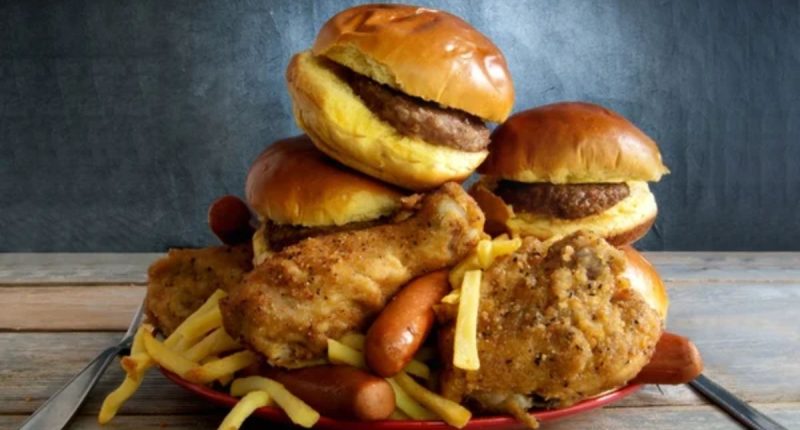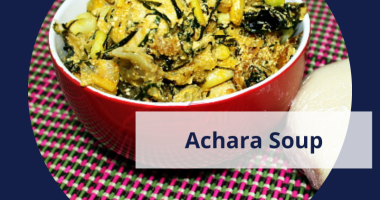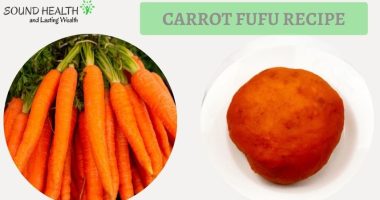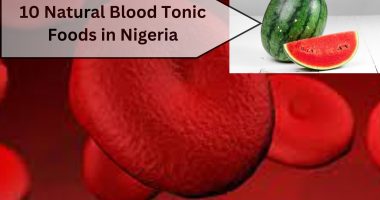These 15 Harmful Effects of Junk Food on Skin, Hair, and Health will encourage you to slow down on fast foods if you are a fan of junk food.
Junk foods are guilty pleasures that satisfy our cravings and provide instant gratification. From greasy burgers, sugary treats, to salty snacks. But have you ever stopped to think about the impact these foods have on your skin, hair, and overall health?
Junk food is a broad term that refers to foods that are high in unhealthy fats, sugar, salt, and processed ingredients.
Observational studies have shown strong evidence that there is a link between junk food consumption and some health problems.
These foods are often low in essential nutrients such as vitamins, minerals, and fiber. Eating too much junk food can have a number of negative effects on your skin, hair, and overall health.
Here are 15 harmful effects of junk food on skin, hair, and health
1. Acne
The link between diet and acne has long been debated, but many studies (1,2) have found a connection between the two. When we eat junk food that is high in sugar and processed ingredients, our insulin levels rise (3). Elevated insulin levels can cause excess oil production in the skin, clogging pores and causing breakouts.
Furthermore, junk foods are frequently high in unhealthy fats like trans fats and omega-6 fatty acids (4). These fats cause inflammation in the body, which can manifest as redness and swelling associated with acne on the skin.
Moreover, junk foods lack essential nutrients that are crucial for maintaining healthy skin. Nutrients like vitamins A, E, C, zinc, and antioxidants play a vital role in promoting clear skin.
2. Premature aging
Processed foods can contribute to accelerated signs of aging (5), making us look older than we actually are. One harmful effect of junk food on the skin is the increase in free radicals (6). These unstable molecules damage collagen and elastin fibers, leading to wrinkles and sagging skin. Additionally, high sugar intake can cause glycation – a process that weakens collagen and accelerates the formation of wrinkles.
3. Eczema
Junk food is frequently high in sugar, unhealthy fats, and artificial additives, all of which can have a negative impact on your skin.
Inflammation is one of the negative effects of junk food on eczema. Excessive consumption of sugary snacks and processed foods can increase inflammation (7) in the body, worsening eczema symptoms such as redness, itchiness, and irritation.
Furthermore, junk food is deficient in essential nutrients that are necessary for maintaining healthy skin (8). Foods high in antioxidants and omega-3 fatty acids are essential for nourishing and protecting our skin. These beneficial nutrients, however, are typically lacking in fast food burgers or bags of chips.
Another negative factor is the presence of potential allergens in many types of junk food. Common culprits include gluten, dairy products, and artificial preservatives – all known triggers for eczema flare-ups.
4. Psoriasis
While the exact cause of psoriasis is unknown, research has shown that poor dietary and lifestyle choices can trigger or worsen symptoms (9).
Processed foods high in sugar and bad fats can cause inflammation in the body, exacerbating psoriasis flare-ups. Furthermore, junk food lacks essential nutrients such as vitamins A, C, and E, which are essential for skin health and immune function. The body’s ability to fight inflammation and regulate cell turnover is harmed by this deficiency.
5. Hair loss
Hair loss is a dreaded phenomenon that affects people of all ages and genders. While there can be various causes for hair loss, junk food consumption has been linked to this worrisome issue. When you consistently fill your body with unhealthy processed foods, it not only deprives your hair of essential nutrients but also triggers hormonal imbalances that can lead to excessive shedding.
First, the high sugar content of junk food is one of the main causes of hair loss (10). Excess sugar consumption can upset your body’s balance and increase inflammation, both of which have a negative impact on the health of your hair follicles.
Second, Junk food is often low in vitamins and minerals that are essential for hair growth, such as iron, zinc, and biotin. Eating a diet that is low in these nutrients can lead to hair loss and thinning.
Finally, It contains trans fats. Trans fats are artificial fats that are harmful to your overall health. They can also inhibit sebum production, which is an oil that your scalp produces to nourish and moisturize your hair. Reduced sebum production can lead to dry and brittle hair.
6. Dry hair
Junk food is often high in empty calories and low in essential nutrients, such as vitamins and minerals that are important for hair health (11). These nutrients help to maintain the moisture balance of your scalp and promote strong and hydrated hair strands.
In addition, junk food can disrupt the production of sebum, an oil that your scalp produces to moisturize your hair. This can lead to dry and brittle hair.
To keep your hair healthy, it is important to limit your intake of junk food and eat a diet that is rich in nutritious foods.
Here are some specific nutrients that are important for hair health:
- Vitamin A: Vitamin A helps to produce sebum, the oil that moisturizes your hair.
- Vitamin B: Vitamin B helps to produce red blood cells, which carry oxygen to your scalp and hair follicles.
- Vitamin C: Vitamin C helps to produce collagen, a protein that is essential for strong hair.
- Iron: Iron is a mineral that helps to carry oxygen to your scalp and hair follicles.
- Zinc: Zinc is a mineral that helps to produce keratin, a protein that is the main component of hair.
You can get these nutrients from a variety of healthy foods, such as fruits, vegetables, whole grains, and lean protein.
7. Dandruff
Junk food can make dandruff worse. Dandruff is a common scalp condition that causes flaky skin and itchiness. There are many factors that can contribute to dandruff, but junk food is one of them.
Junk food is often low in essential nutrients that are important for scalp health. It can also disrupt the balance of natural oils on your scalp, leading to dryness or oiliness. This imbalance can create an environment where fungus can thrive, which can cause dandruff flakes.
In addition, junk food often contains high levels of sodium and artificial additives(12), which can cause inflammation throughout the body, including on the scalp. Inflammation can make dandruff worse and make it harder to heal.
To reduce dandruff, it is important to eat a balanced diet that is rich in vitamins, minerals, and antioxidants. This includes eating plenty of fruits, vegetables, whole grains, lean protein, and healthy fats.
8. Weight gain and obesity:
Junk food is high in calories and unhealthy fats, which can lead to weight gain and obesity. Weight gain occurs when you eat more calories than you burn. Obesity is defined as having a body mass index (BMI) of 30 or higher. BMI is a measure of body fat based on height and weight. Studies have it that obesity is a major risk factor for many chronic diseases, including heart disease (13), and stroke ( overweight increases your risk of stroke by 22% and if you are obese that risk increases by 64% (14)), type 2 diabetes (15), and some types of cancer.
9. Heart disease
Eating junk food can lead to heart disease. Junk food is often high in unhealthy fats, sugar, and salt. All of these nutrients can contribute to heart disease in a number of ways. In addition, junk food is often low in essential nutrients such as vitamins, minerals, and fiber. These nutrients are important for maintaining a healthy heart. For example, a study published in the journal Circulation found that people who ate the most junk food were 55% more likely to die from heart disease than those who ate the least junk food. Another study, published in the journal Heart, found that people who ate fast food more than twice a week were 61% more likely to have a heart attack or stroke than those who ate fast food less than once a month. These studies suggest that eating junk food can significantly increase your risk of heart disease (16, 17).
10. Type 2 diabetes
Type 2 diabetes is a serious health condition that affects millions of people worldwide(18). This chronic disease occurs when the body becomes resistant to insulin or does not produce enough of it. While genetics and lifestyle play a role in developing type 2 diabetes, consuming excessive amounts of junk food can significantly increase your risk.
When you indulge in junk food on a regular basis, you’re bombarding your body with high levels of sugar, unhealthy fats, and processed ingredients. These factors can lead to weight gain and obesity, which are major contributors to the development of type 2 diabetes.
Furthermore, junk food lacks essential nutrients like fiber and antioxidants that help regulate blood sugar levels. As a result, your blood glucose spikes after consuming these foods, putting stress on your pancreas to produce more insulin.
Over time, this constant demand for insulin may exhaust the pancreas and lead to insulin resistance. Insulin resistance means that your cells don’t respond properly to insulin’s signals anymore, causing an accumulation of glucose in the bloodstream.
11. Cancer
Cancer is a serious and complex disease that can have devastating effects on our health. Unfortunately, consuming junk food regularly can increase the risk of developing various types of cancer(19).
Processed foods are often high in unhealthy additives, preservatives, and artificial ingredients that can promote inflammation in the body. Chronic inflammation has been linked to an increased risk of cancer development.
Furthermore, many junk foods contain high levels of trans fats and saturated fats. These unhealthy fats have been associated with an increased risk of certain cancers (20) such as breast, colon, and prostate cancer.
12. High blood pressure
High blood pressure, also known as hypertension, is a serious health condition that can be worsened by consuming junk food. When we indulge in greasy burgers, salty snacks, and sugary drinks on a regular basis, we are putting our cardiovascular system at risk.
One of the main culprits behind high blood pressure is sodium. Junk foods tend to be loaded with salt to enhance flavor and preserve shelf life. However, excessive sodium intake can lead to fluid retention and increased blood volume(21), causing the heart to work harder to pump blood throughout the body.
Moreover, junk food often contains unhealthy fats such as saturated and trans fats. These fats can contribute to arterial plaque buildup over time, narrowing the blood vessels and raising blood pressure levels.
RELATED: Does Your Body Retain Water More? Get Rid Of It Naturally With This
13. High cholesterol
High cholesterol is a common problem that many people face today, and it is often linked to the consumption of junk food. When we indulge in fatty and greasy foods, our body absorbs high levels of unhealthy fats, leading to an increase in LDL (bad) cholesterol.
Excess cholesterol can build up in our arteries, narrowing them and restricting blood flow. This condition, known as atherosclerosis(22), increases the risk of heart disease and stroke. Moreover, high cholesterol levels also have detrimental effects on our skin and hair.
When blood vessels are clogged with plaque due to high cholesterol levels, proper nourishment cannot reach the hair follicles effectively. Consequently, this can lead to weakened hair roots and increased hair fall. Additionally, junk food lacks essential nutrients that are necessary for maintaining healthy skin. Don’t miss: Things To Do After Eating High Cholesterol Foods And What To Avoid
14. Fatty liver disease
Fatty liver disease is a serious condition that can be caused by consuming too much junk food(23). When we indulge in foods high in sugar, unhealthy fats, and processed ingredients, it takes a toll on our liver.
The liver plays a crucial role in processing nutrients and filtering toxins from the body. However, when we overload it with excessive amounts of junk food, it struggles to keep up. This leads to the accumulation of fat in the liver cells, resulting in fatty liver disease.
One of the primary culprits behind this condition is fructose, which is commonly found in sugary beverages and processed snacks. Consuming excess fructose overwhelms the liver’s ability to metabolize it properly, leading to an increase in fat production and storage.
RELATED: 4 major signs your liver could be failing
15. Kidney disease
Kidney disease is a serious condition that affects millions of people worldwide. Consuming excessive amounts of junk food can contribute to the development and progression of kidney disease(24). High levels of sodium in processed foods can lead to high blood pressure, which puts stress on the kidneys and increases the risk of kidney damage.
Furthermore, many types of junk food are loaded with additives and preservatives that can harm kidney function over time. These substances may increase inflammation within the body and impair proper filtration by the kidneys. Next read 11 Most Common Diseases That Damage Your Kidney
How to reduce your intake of junk food

The best way to reduce your intake of junk food is to eat a healthy diet that is rich in fruits, vegetables, and whole grains. You should also limit your intake of processed foods, sugary drinks, and unhealthy fats.
Here are some tips for reducing your intake of junk food:
- Cook more meals at home so that you can control the ingredients.
- When eating out, choose restaurants that offer healthy options.
- Avoid processed foods, such as chips, cookies, and candy.
- Limit your intake of sugary drinks, such as soda and juice.
- Choose healthy snacks, such as fruits, vegetables, nuts, and yogurt.
By reducing your intake of junk food, you can improve your skin, hair, and overall health.
Note: This article is written based on scientific evidence found by the soundhealthandlastingwealth.com team. Sources are duly referenced with parameters hyperlinked to source websites and are clickable for reference.










